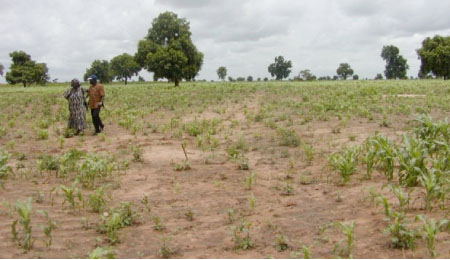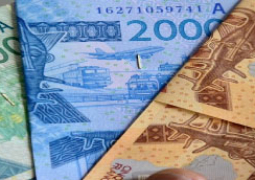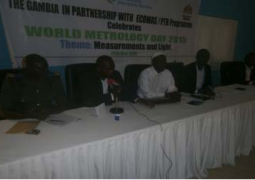
An
observer on developing countries once said, if development is to reach the
people without long waits for its trickle down or spread effects then
development must act directly in the agriculture sector itself. Therefore,
advancing the agriculture sector for food security and sustainable development
becomes a National imperative.
It
is bad tendency to idealise the past efforts in agricultural development
without admitting its setbacks and doing something about it in concrete terms.
In order to properly understand the situation, one must have a framework of
leading ideas.
It
is an established fact that despite the energies and resources The Gambia is
still marching on its stomach and poverty is worsening across the country.
It
is shameful that a country of 2 million people could not feed itself. The river
Gambia continues to laugh at us for its unutilization to revamp the agriculture
sector. Foreign business operators calling themselves Gambians have ensured
that we remain a consumer society instead of an exportoriented economy. We
continue to depend on imported foodstuff at the expense in many ways of the Nation’s
health. We see mayonnaise from Holland, Butter from Germany, rice from India,
Pakistan, Brazil, tea from Ceylon and England, Cornflakes from America, Chicken
feed from Senegal, mango juice from Saudi Arabia and so forth.
The
Gambia has virtually become a consumer society free for all products from any
corner of the world. Right now, 80 % of the diseases in the country are
attributed to Non Communicable diseases such as High blood, Diabetics,
Cholesterol, Hypertension, etc. Gambians will never be well as long as their
mouths continue to be elsewhere in the world.
For
54 years The Gambia continues to depend on subsistence farming and rain-fed
agriculture which have broken the backs of the farmers and weakened rural
communities in terms of socio-economic development. The people have
sufferedpoverty for too long due to failures in agriculture, the desire for the
enrichment of the few and misplacement of priorities in the development
process. This has become manifest in the debates on the 2020 budget in the
National Assembly.
Kwame
Nkrumah had warned Africa that “every time we import goods which could have
been produced or manufactured at home, we are continuing our economic
dependence and delaying our economic growth”. In this connection therefore,
there is no better strategy to poverty alleviation in Africa and The Gambia in
particular than moving agriculture in a rapid and substantial manner.
Development is for nothing if it is not felt by the people.
The
transformation of the agriculture sector from subsistence farming to commercial
agriculture, from rain-fed agriculture to irrigation agriculture are the way
forward to advancing the country’s economic development and growth. This New
orientation should form the cornerstone of agricultural activity. The production
pattern in agriculture has to change and to be based on diversification and
mostly on irrigation system. The role of government in this process is vital to
the prosperity of the country and the people. The donor community should be
seen to support the plans of government and not be drivers of the process of
agricultural development. The key to sustainable livelihood is for the country
to eat what it grows and to grow what it eats. It is high time for government
to direct donor money and investors to areas of agriculture that will ensure
the empowerment of farmers and that will bring meaningful results in economic
development.




